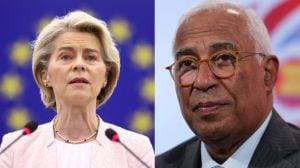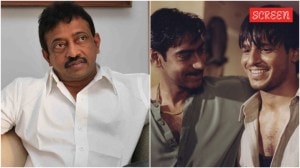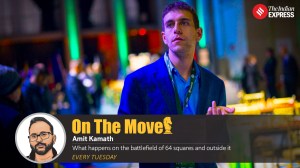Chicago doctor to plant the seed of human cloning
WASHINGTON, January 7: The world's first human clone may be toddling even before the turn of the millennium. A Chicago scientist has thrown ...

WASHINGTON, January 7: The world’s first human clone may be toddling even before the turn of the millennium. A Chicago scientist has thrown the scientific and religious community into turmoil by announcing that he is ready to clone a human, possibly within months.
Dr Richard Seed, a well-known and widely respected PhD physicist who has been involved in various kinds of fertility research, disclosed on Wednesday that he is "90 per cent ready" to clone human beings. He has assembled a team of doctors for the purpose and has a pool of four couples who have volunteered for the purpose. He did not name the couples or the doctors.
Dr Seed however said the first choice couple is a man and a woman. "The only way they can transmit any of their genes is by cloning," he said.
The Chicago scientist’s announcement, coming barely a year after researchers cloned the sheep named Dolly, shook the scientific and religious world for the deeply troubling ethical questions and medical risks it posed. Despite the difficulties involved in the venture, scientists and theologians agreed that cloning can be done, but the question was whether it should be done.
"It (cloning) is something God-like… it is not a part of human activity. We are going down the path of creation," Harold Shapiro of the National Bioethics Advisory Commission warned. The commission last year recommended that Congress enact a law that would make human cloning illegal, but this is yet to get a legislative look in. On the executive side, President Clinton has already banned the use of federal money to conduct cloning experiments and has requested private enterprises to voluntarily refrain from cloning activity.
But Seed, who is the first scientist to publicly bluntly say that he has both the means and the intention to undertake cloning, says cloning will be a boon to infertile couples. In radio and television interviews, he is quite blase about the ethical and medical storm he is kicking up.
"There are an awful lot of people who are against theautomobile. Any new venture creates horror and fear," he said. But for now, there is more outrage. Even fellow scientists worry about the fallout in the medical terms, not to speak of the theological debate that will ensue. One scientist chafed about the psychological impact of a child having to live out a previously experienced genotype.
Doctors are not even certain how successful the fertilisation process will be and how the foetus will behave, given the fact that it took the scientists who cloned Dolly some 270 attempts to get results. But Seed appears confident of having refined the technique and spoke of establishing several cloning clinics in Chicago and other American cities. He also spoke of setting up "six or seven international clinics”.
Although Seed made his cloning announcement six weeks ago at a scientific conference, the story surfaced in the mainstream media only on Tuesday after a National Public Radio reporter spoke. The clone would be derived from a single cell taken from an adult. Using an electrical jolt, scientists would fuse the genes from that cell with a specially treated donor egg cell whose own genes had been removed. That cell would be allowed to grow into an embryo in a laboratory. The embryo would then be implanted into the womb of a surrogate mother where it would develop into a person genetically identical to the original donor.



- 01
- 02
- 03
- 04
- 05




























